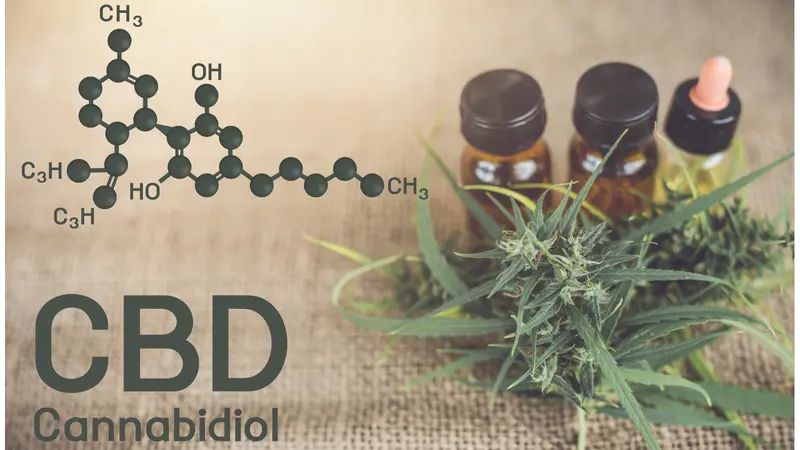

Emerging

Emerging
Is CBD Effective for Preventing or Treating Heart Disease?
There are an abundant number of health claims for using CBD, including those associated with preventing or treating heart disease. However, these claims are ahead of the research.
Cannabidiol, or CBD, is one of the main cannabinoids found in the marijuana and non-psychoactive hemp plants; it is the part of the plant that will not produce a “high.” You can find CBD in a variety of products–oils, lotions, salves, beverages, edibles, supplements, and vape products–and business is booming. According to Statista, CBD product sales were about $5 billion in 2020 and expected to grow to nearly $17 billion in 2025. CBD products are not regulated by the U.S. Food and Drug Administration (FDA), and the only CBD-based drug that is FDA-approved is for the treatment of epilepsy.
The research behind using CBD to prevent and treat heart disease is limited and most of it has been focused on animal studies. These early studies are promising, and suggest that CBD’s antioxidative and anti-inflammatory properties may be able to reduce the risk factors associated with heart disease and stroke. However, larger and more rigorous human clinical trials are needed to determine if these responses to CBD will translate into the human cardiovascular system.
A study published in the British Journal of Pharmacology evaluated the effect of CBD on rats. Researchers found that CBD lowered the rats’ blood pressure and heart rates when subjected to restraint stress. Another study in the same journal demonstrated that CBD was “cardioprotective” in rats by lowering ventricular arrhythmias (irregular heartbeats where the lower chambers of the heart twitch instead of pump), some of which may be fatal.
In a small, randomized study published in JCI Insight, nine men were given either 600 mg of CBD or a placebo and their blood pressure, stoke volume, heart rate, and cardiac output were measured both before and after experiencing cold stress. Researchers found the CBD group had lower resting blood pressure and lower stress-related blood pressure with the increased heart rate.
A meta-analysis of 25 studies that assessed changes in hemodynamics (blood pressure, heart rate, and blood flow) from the use of CBD was published in Frontiers in Pharmacology. The analysis highlighted the lack of human trials of the effects of CBD, as most of the studies analyzed were animal studies (e.g., mice, rats, monkeys). From the limited data available, the researchers found that short- and long-term administration of CBD had no effect on blood pressure or heart rate under control conditions, but CBD does reduce blood pressure and heart rate in stressful conditions. Researchers also noted that CBD increased blood flow to the brain in mouse models of stroke. The research suggests that CBD may be used as a treatment for various cardiovascular disorders, such as hypertension, myocardial infarction, and stroke. However, further studies are required to fully understand the potential hemodynamic effects of CBD in humans.
While CBD is generally considered safe to use, additional safety research is needed to evaluate its effect on genetic material, hormones, and the immune system from prolonged use. The most common side effects from CBD include fatigue, diarrhea, changes in appetite, and changes in weight.
CBD can also interact with other medications because it may interfere with certain liver enzymes. According to the Natural Medicines database, CBD may interact with 34 different drugs and drug classes, including drugs to treat blood clots, seizures, depression, cancer, and dermatitis, among others. A 2017 study of rats also suggested that CBD could damage the liver. Therefore, you should discuss potential drug interactions with your practitioner before taking CBD.
Another cause for concern is the unreliability of the purity and dosage of CBD in products. The Natural Medicines database cautions that one laboratory assessment of CBD content found that in 69% of the commercially available products tested, the actual CBD was either over- or under-labeled. It was also found that about 21% of the CBD products contained unlabeled delta-9-tetrahydrocannabinol (THC), the part of the plant that produces a “high.” Consumers purchasing CBD products should check if the product has been tested by a third-party laboratory and compare those results against the label to be sure they are getting what they paid for.
Hopefully, some of the profits being made on CBD will be directed to human clinical trials to evaluate its effectiveness for preventing and treating cardiovascular and other diseases.
REFERENCES
Ewing, L. et al. (2019, April 30). Hepatotoxicity of a cannabidiol-rich cannabis extract in the mouse model. MDPI. https://www.mdpi.com/1420-3049/24/9/1694
Iffland, K., Grotenhermen, F. (2017, June 1). An update on safety and side effects of cannabidiol: A review of clinical data and relevant animal studies. Mary Ann Leibert, Inc. https://www.liebertpub.com/doi/10.1089/can.2016.0034
Jadoon, K., Tan, G., O’Sullivan, S. (2017, June 15). A single dose of cannabidiol reduces blood pressure in healthy volunteers in a randomized crossover study. JCI Insight. https://insight.jci.org/articles/view/93760
Resstel, L. et al. (2008, December 24). 5-HT1A receptors are involved in the cannabidiol-induced attenuation of behavioural and cardiovascular responses to acute restraint stress in rats. British Journal of Pharmacology. https://bpspubs.onlinelibrary.wiley.com/doi/10.1111/j.1476-5381.2008.00046.x
Sultan, S. et al. (2017, February 24). A systematic review and meta-analysis of the hemodynamic effects of cannabidiol. Frontiers in Pharmacology. https://www.frontiersin.org/articles/10.3389/fphar.2017.00081/full
van Gelder, K. (2022, January 12). CBD retail in the United States - statistics and facts. Statista. https://www.statista.com/topics/6262/cbd-retail-in-the-united-states/#dossierKeyfigures
Walsh, S. et al. (2010, July). Acute administration of cannabidiol in vivo suppresses ischaemia-induced cardiac arrhythmias and reduces infarct size when given at reperfusion. British Journal of Pharmacology. https://www.ncbi.nlm.nih.gov/pmc/articles/PMC2936031/


 By
By



